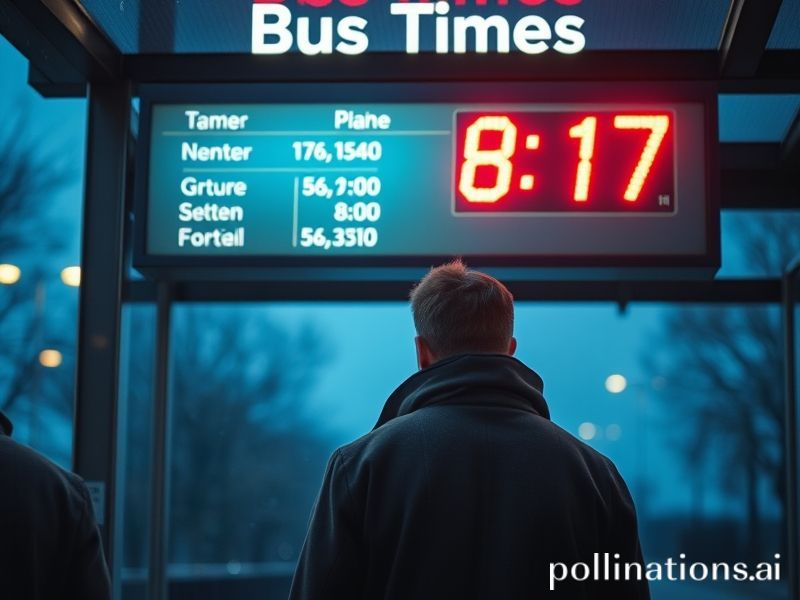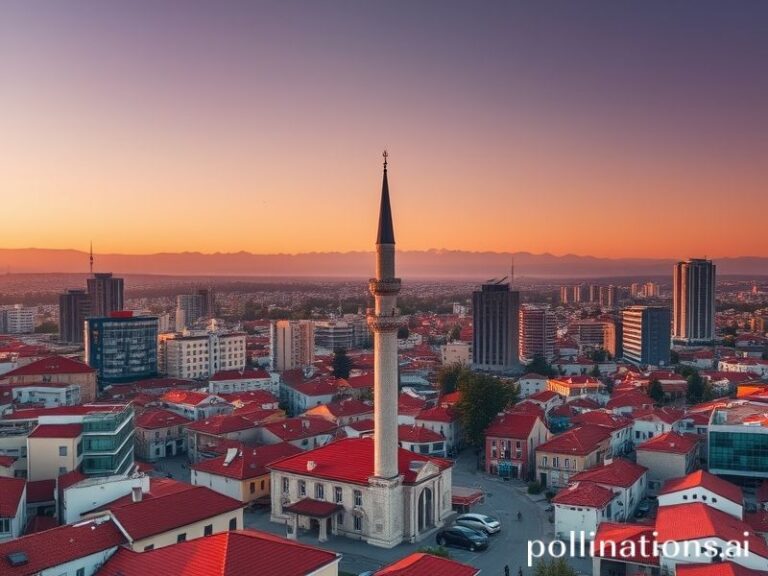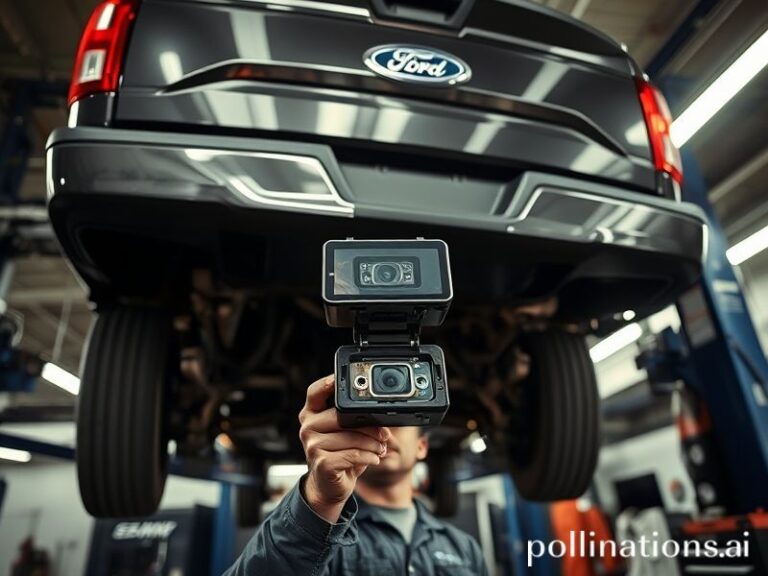Global Bus Times: How the World’s Most Universal Disappointment Unites Humanity
**The Global Symphony of Bus Times: Humanity’s Shared Exercise in Managed Disappointment**
In the grand theater of human civilization, where we’ve split atoms, sequenced genomes, and convinced ourselves that cryptocurrency is real, nothing quite unites us like the humble bus schedule—that beautifully optimistic fiction that transcends borders, cultures, and common sense.
From the frostbitten commuters of Oslo to the sweat-soaked passengers of Mumbai, the universal truth remains: the bus will come when it damn well pleases, and we will wait for it like the desperate, hopeful fools we are. It’s humanity’s most democratic experience; billionaires and beggars alike are equally powerless before the whims of public transportation.
In London, where they’ve mastered the art of apologizing for delays that haven’t happened yet, passengers huddle beneath bus stops studying electronic boards that promise arrival times with the confidence of a politician’s campaign pledge. The Brits, ever polite, will form orderly queues while privately composing letters to their MPs about the scandal of the 73 being three minutes late—again.
Meanwhile, in Lagos, Nigeria, where “bus times” is more of a philosophical concept than a measurable reality, danfo drivers have elevated schedule flexibility to an art form. These yellow minibuses operate on what physicists might call “quantum time”—simultaneously arriving and not arriving until observed by a passenger willing to pay the right fare. It’s Schrödinger’s Bus, if you will, except the cat is probably stuck in traffic.
The Germans, bless their efficient hearts, have approached bus scheduling with typical Teutonic precision. Munich’s buses arrive within 30-second windows, a feat so miraculous that it suggests either divine intervention or a deal with Satan himself. This punctuality comes at the cost of joy, naturally, but who needs happiness when you have reliability?
In Buenos Aires, bus times are governed by the same chaotic energy that makes tango passionate and inflation astronomical. Porteños have developed an almost spiritual relationship with their colectivos, boarding them with the fatalistic resignation of people who’ve accepted that time is a social construct anyway.
The truly international phenomenon, however, is the “bus app revolution”—that glorious moment when technology promised to end our collective suffering. Apps like Citymapper and Moovit spread across the globe like digital missionaries, converting the faithful to the church of Real-Time Updates. The irony, of course, is that these apps merely quantify our disappointment with GPS precision. “Your bus is 0 minutes away” has become the 21st century’s “the check is in the mail.”
In post-pandemic reality, bus schedules have taken on new significance. Social distancing requirements turned every bus into an exclusive nightclub with a bouncer named Dave who decides whether you’re essential enough to ride. Cities from New York to New Delhi grappled with reduced services, creating a paradox where buses ran less frequently but were somehow still late.
The environmental implications are equally fascinating. As nations pledge to reduce carbon emissions, buses represent both salvation and damnation—efficient mass transit when full, diesel-chugging monstrosities when empty. The schedule determines everything: miss your bus and you might drive instead, adding your personal contribution to our collective climate suicide.
Perhaps the most profound truth is that bus times reveal our shared humanity in all its tragic glory. We are all, regardless of nationality or net worth, reduced to the same anxious creatures checking our phones, peering into the distance, hoping that this metal box on wheels will arrive to carry us toward whatever destiny awaits—probably another bus stop.
In the end, bus schedules are less about transportation and more about hope itself. They represent our touching belief that we can impose order on chaos, that technology will save us, that we’ll arrive somewhere better than where we started. And like all hope, it’s simultaneously beautiful and heartbreaking, especially when you’re standing in the rain at 7 AM watching cars drive by filled with people smart enough to have bought one.







